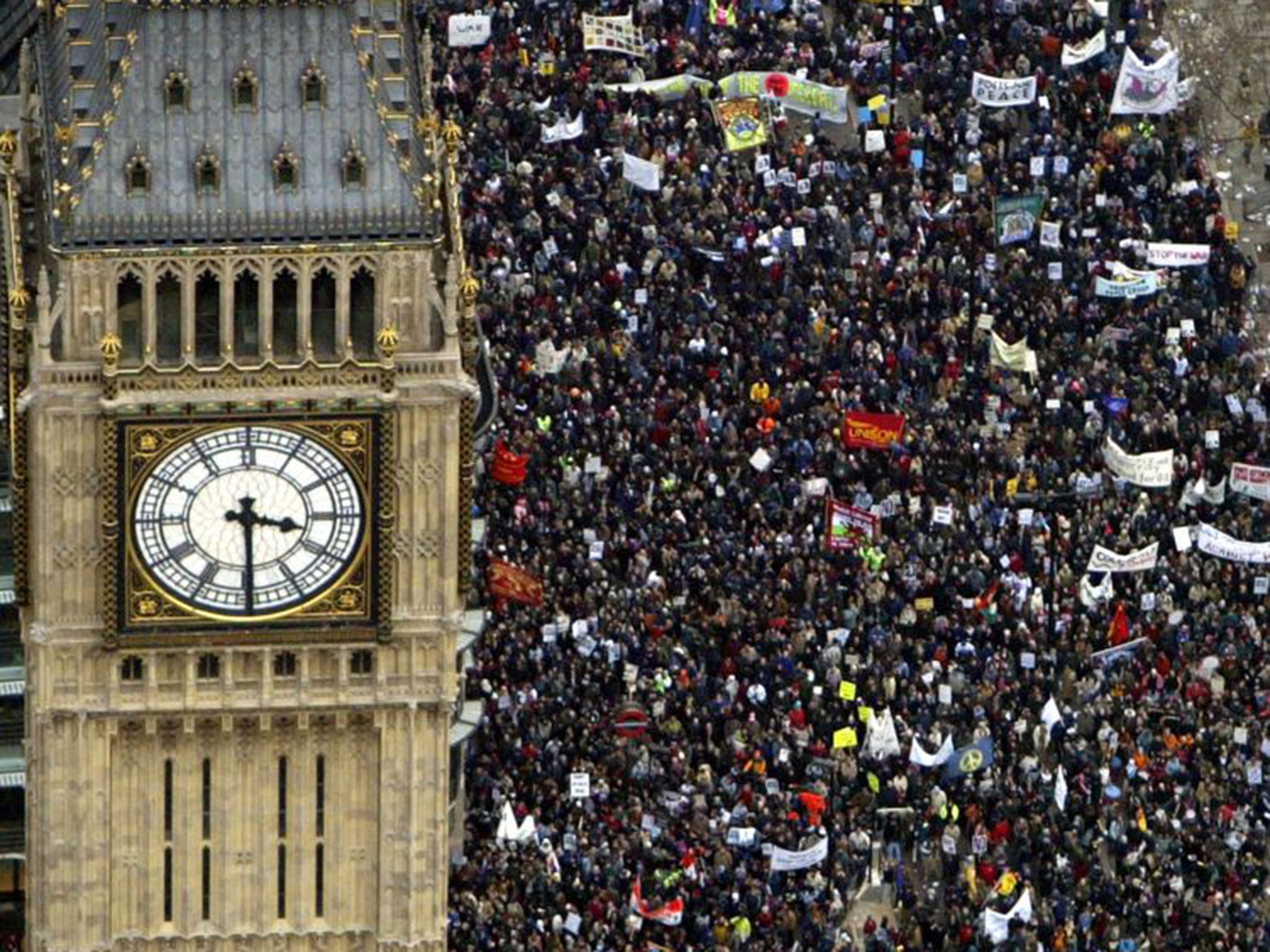- Jan 6, 2018
- 11,637
The state of war between Canada and France had instigated another war, but this time on the streets of London. In an organised march, over 700 people took to the streets in support of the French Empire. French flags held above the crowds with signs calling for Canada to cease its hostilities, calling for peace talks and others, simple anti-war posters. Aware of the planned protest, the Metropolitan Police already had significantly more officers on the streets to ensure the march was directed as per the approved plans with tens of high visibility officers at each junction. Officers arriving in mass in the back of police sprinter vans and armed response officers in close proximity. There were no indications of violence but the route was to conclude at the High Commission of Canada where a concentrated amount of officers of the Diplomatic Protection Group were stationed as a precaution. The march lasted around three hours, ranging from chanting support for France to criticizing the Canadian Government; anyone that was considered to be turning aggressive would be quickly subdued by law enforcement and arrested.



A total of 27 people arrested for breaching the law but for the majority, the march remained a peaceful protest; and in good taste. The event was organised by a 'Stop the War' movement which supported peaceful resolutions over any form of armed conflict. This was the beginning of three major protests in London with numbers for the next two expected to increase. Other groups across the UK had also begun to carry out similar marches. However... the protests were far from one sided. Some groups claimed the new government of France, designated an 'empire', was in itself an invitation to be challenged. Other support for Canada came from its roots, despite having its own monarch, some still see it as a part of the Commonwealth so backed the move from Canada out of sympathy for the attacks they had suffered. The real challenge was for the authorities to ensure those in support of France, and in support of Canada, remained divided to avoid internal conflict. This was done by scheduling different protest dates and times to keeping the marches moving; enough to prevent opposing sides from reacting.



A total of 27 people arrested for breaching the law but for the majority, the march remained a peaceful protest; and in good taste. The event was organised by a 'Stop the War' movement which supported peaceful resolutions over any form of armed conflict. This was the beginning of three major protests in London with numbers for the next two expected to increase. Other groups across the UK had also begun to carry out similar marches. However... the protests were far from one sided. Some groups claimed the new government of France, designated an 'empire', was in itself an invitation to be challenged. Other support for Canada came from its roots, despite having its own monarch, some still see it as a part of the Commonwealth so backed the move from Canada out of sympathy for the attacks they had suffered. The real challenge was for the authorities to ensure those in support of France, and in support of Canada, remained divided to avoid internal conflict. This was done by scheduling different protest dates and times to keeping the marches moving; enough to prevent opposing sides from reacting.


